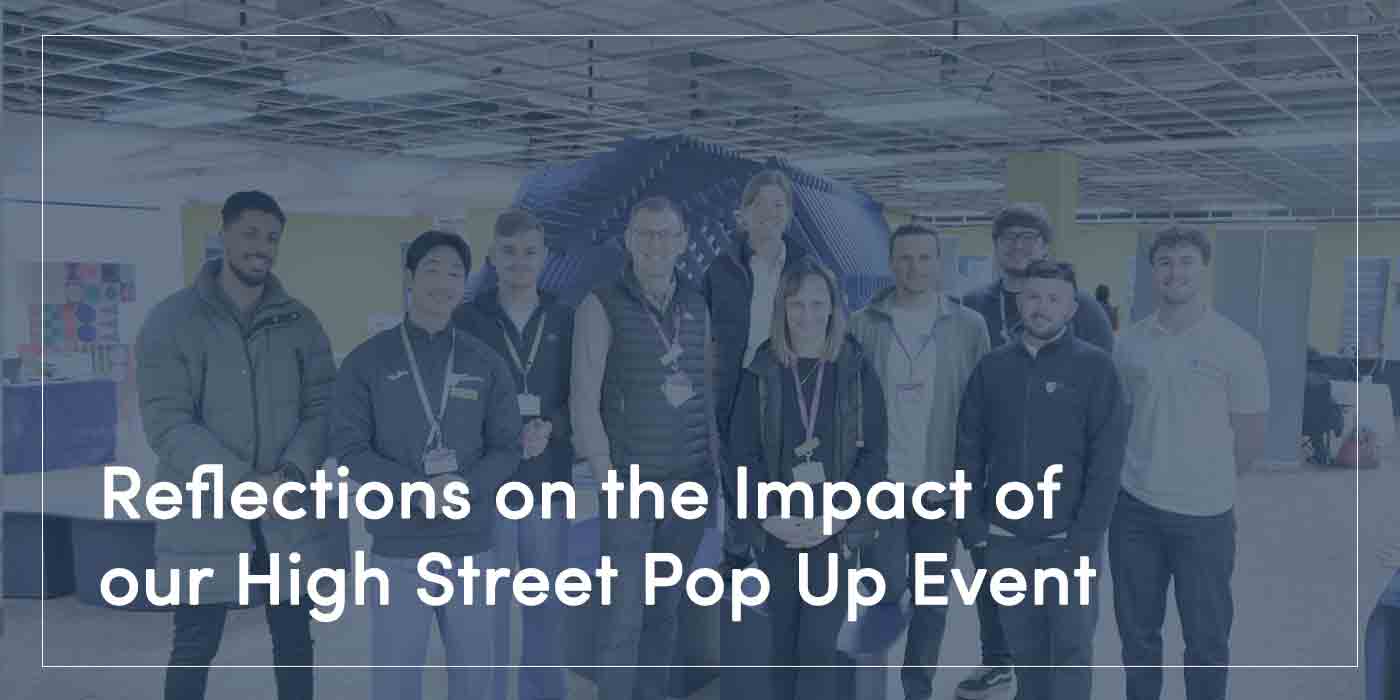Reflections on the Impact of our High Street Pop Up Event

The Clinical and Rehabilitation Services team recently held a Health and Support Pop Up Event on Boscombe High Street for the community. Our main objective was to bring together a multidisciplinary team to provide free health checks, triage sessions, group exercise classes and support to the community in an easily accessible venue in the centre of Boscombe.
The event took place at Boscombe Arts Depot, a very large space in the centre of Boscombe which was originally a department store. The space comprises of a large gallery space, theatre-in-the-round, lounge cinema and education space.
Our team took over this space and staff and students carried out over 500 NHS health checks, blood pressure checks, ultrasound scans, dietary advice sessions, foot checks and musculoskeletal triage (assessing muscle or joint problems), which are usually offered in our Parkwood Road clinic setting. Visitors were also able to visit information stands from over 10 partnership organisations.
We welcomed 500 people over two weeks, many of whom do not currently engage in healthcare services. Clinical staff and students had a number of conversations with members of the public, providing musculoskeletal assessments, NHS health checks, signposting to relevant organisations and offering health advice.
The event was funded by the Regional Innovation Fund (RIF), which focuses on knowledge exchange activities that support economic growth and productivity, addressing local and regional priorities.
Reflecting on Clinical Conversations
We met a member of the public who came in to see what the event was about. He decided to have an NHS health check, as he was eligible. During the health check, he told one of the clinicians that he consumed two bottles of rum each week and that as a result, he didn’t often feel hungry. His diet included two bags of chips from the fish and chip shop per day.
He suggested that in order to improve his diet, he could perhaps try to reduce his consumption of chips to one bag per day. The gentleman had some back pain and also went through our MSK triage, receiving advice for managing this.
A couple of days later, he returned to the Pop Up event for a complimentary cup of coffee and told our clinical team that he was managing to reduce his consumption from two bags of chips per day to one.
Another visitor to the event was a male who was experiencing issues with his feet. He was finding it hard to stand and so went through our MSK triage and received advice for managing this and signposting to relevant services. He went on to have an NHS health check and as part of this, shared with the team that he was living in sheltered housing having recently been released from prison. He wasn’t currently working, but was worried that when he was eligible to work again he wouldn’t be able to do so due to his foot pain.
As well as offering advice for a recommended MSK pathway, a representative from the Department of Work and Pensions had an information stand at the event and we were able to refer the gentleman to them, for advice on accessing benefits and managing payments.
In this way, the event helped this individual with a whole-person approach: addressing both the individual’s physical ailment as well as issues within their wider personal life.
A third clinical conversation was with the mother of a 12-year-old girl who was autistic and mute, using sounds to communicate. The mother and daughter had dropped into our event on the off-chance and told the clinical team about the pain the daughter, who uses a wheelchair, was experiencing. They were currently accessing very little support and went through our MSK triage which suggested relevant further assessments.
The team was also able to direct the pair to other agencies within the event, who were able to offer support such as help with completing forms relating to DLA and carers allowance.
Conclusion
Having representatives from across our multidisciplinary team in attendance at this event, as well as colleagues from support organisations, allowed us to support visitors with a range of needs and concerns. We saw many individuals who were not engaged in the NHS and traditional health care pathways and were able to encourage them to re-engage with these services and with their own health. Using a community space for this event made this much more likely and removed much of the hesitancy that some people can feel in visiting clinical spaces.
This event also gave participating students from AECC University College, across a number of courses, experience with colleagues from across different health care professions. This is hugely valuable to their clinical education, enabling them to experience the different lenses offered by different health care disciplines.